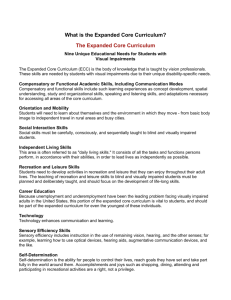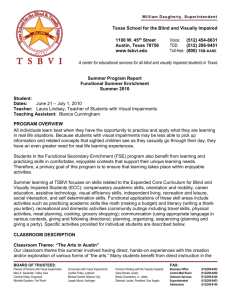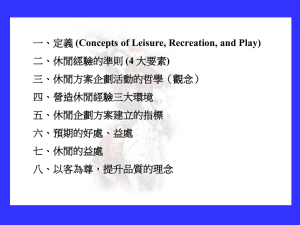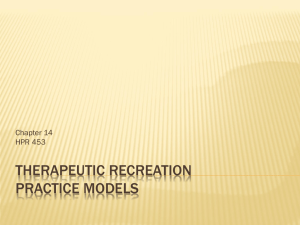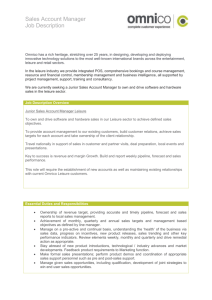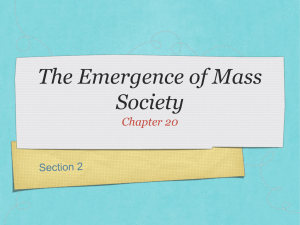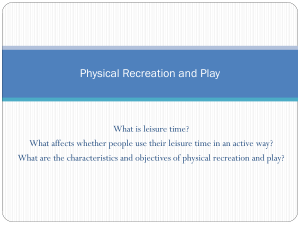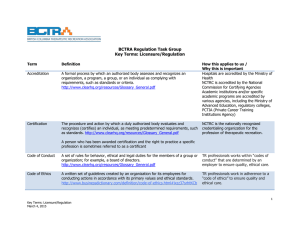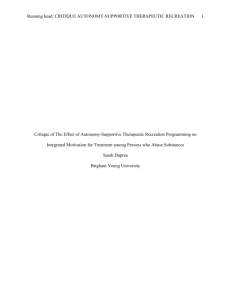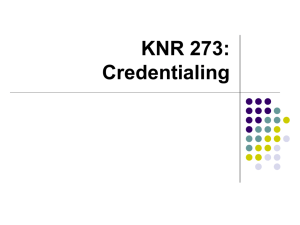Thank you in advance for your submission
advertisement
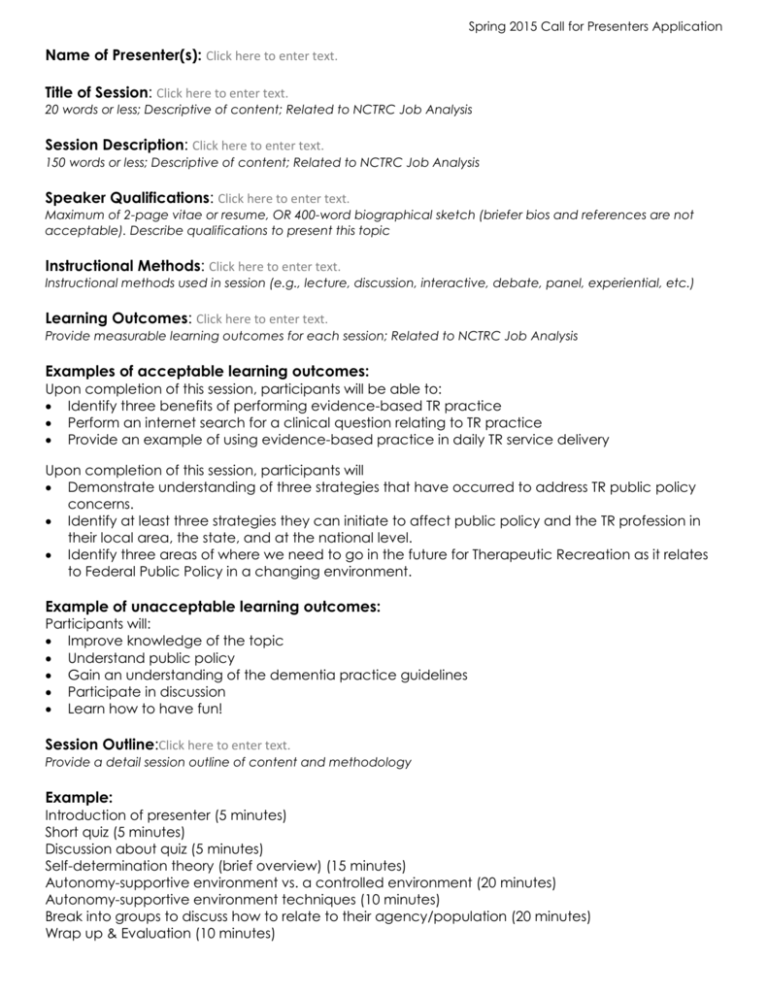
Spring 2015 Call for Presenters Application Name of Presenter(s): Click here to enter text. Title of Session: Click here to enter text. 20 words or less; Descriptive of content; Related to NCTRC Job Analysis Session Description: Click here to enter text. 150 words or less; Descriptive of content; Related to NCTRC Job Analysis Speaker Qualifications: Click here to enter text. Maximum of 2-page vitae or resume, OR 400-word biographical sketch (briefer bios and references are not acceptable). Describe qualifications to present this topic Instructional Methods: Click here to enter text. Instructional methods used in session (e.g., lecture, discussion, interactive, debate, panel, experiential, etc.) Learning Outcomes: Click here to enter text. Provide measurable learning outcomes for each session; Related to NCTRC Job Analysis Examples of acceptable learning outcomes: Upon completion of this session, participants will be able to: Identify three benefits of performing evidence-based TR practice Perform an internet search for a clinical question relating to TR practice Provide an example of using evidence-based practice in daily TR service delivery Upon completion of this session, participants will Demonstrate understanding of three strategies that have occurred to address TR public policy concerns. Identify at least three strategies they can initiate to affect public policy and the TR profession in their local area, the state, and at the national level. Identify three areas of where we need to go in the future for Therapeutic Recreation as it relates to Federal Public Policy in a changing environment. Example of unacceptable learning outcomes: Participants will: Improve knowledge of the topic Understand public policy Gain an understanding of the dementia practice guidelines Participate in discussion Learn how to have fun! Session Outline:Click here to enter text. Provide a detail session outline of content and methodology Example: Introduction of presenter (5 minutes) Short quiz (5 minutes) Discussion about quiz (5 minutes) Self-determination theory (brief overview) (15 minutes) Autonomy-supportive environment vs. a controlled environment (20 minutes) Autonomy-supportive environment techniques (10 minutes) Break into groups to discuss how to relate to their agency/population (20 minutes) Wrap up & Evaluation (10 minutes) Spring 2015 Call for Presenters Application NCTRC Job Analysis Areas: You may notice that we now ask for job analysis codes for each session. These are identical to the codes NCTRC uses in their recertification application ☐FKW - Foundational Knowledge ☐Background ☐Diagnostic Grouping ☐Theories and Concepts ☐PTR - Practice of RT/TR ☐ORG - Organization of RT/TR ☐TR Service Delivery ☐Administrative Tasks ☐ADV - Advancement of the Profession ☐Strategies and Guidelines ☐Assessment ☐Documentation ☐Implementation Here are some examples for each knowledge domain: Foundational Knowledge Practice of TR/RT ☐1. Theories of play/recreation/leisure ☐20. Concepts of TR/RT ☐2. Social psychological aspects of play ☐21. Models of TR/RT service delivery ☐3. Diversity factors ☐22. Practice settings ☐4. Human growth/development ☐23. Standards of practice ☐5. Theories of human behavior ☐24. Code of ethics ☐6. Leisure throughout lifespan ☐25. Impact of impairment ☐7. Leisure lifestyle development ☐26. Selection of assessment ☐8. Concepts of health/human services ☐27. Implementation of assessment ☐9. Cognition and related impairments ☐28. Behavioral observations ☐10. Anatomy, physiology, and related ☐29. Interview techniques for assessment ☐30. Functional skills testing for assessment impairments ☐11. Senses and related impairments ☐31. TR/RT/leisure assessment instruments ☐12. Psychology and related impairments ☐32. Other inventories/questionnaires ☐13. Normalization/inclusion ☐33. Other sources of assessment data ☐14. Architectural barriers/accessibility ☐34. Interpretation of assessment ☐15. Societal attitudes ☐35. Sensory assessment ☐16. Legislation ☐36. Cognitive assessment ☐17. Relevant guidelines/standards ☐37. Social assessment ☐18. Principles of group interaction/leadership ☐38. Physical assessment ☐19. Principles of behavioral change ☐39. Affective assessment ☐40. Leisure assessment ☐41. Documentation ☐42. Nature of recreation/leisure activities ☐43. Purpose/techniques of activity analysis ☐44. Leisure education/counseling ☐45. Selection of programs ☐46. Activity modifications ☐47. Modalities/interventions ☐48. Facilitation techniques/approaches Spring 2015 Call for Presenters Application Organization of TR/RT Service ☐49. Program design ☐50. Service delivery systems ☐51. Writing measurable goals/behavioral objectives ☐52. Health/human service professions ☐53. Documentation procedures ☐54. Interpretation of progress notes ☐55. Evaluating agency/TR/RT Service program ☐56. Quality improvement ☐57. TR/RT Service plan of operation ☐58. Personnel/intern/volunteer supervision ☐59. Payment system ☐60. Facility/equipment management ☐61. Budgeting/fiscal responsibility Advancement of the Profession ☐62. Historical development of TR/RT ☐63. Accreditation standards/regulations ☐64. Professionalism ☐65. TR/RT certification/recertification ☐66. Advocacy ☐67. Legislation/regulations ☐68. Professional standards/ethical guidelines ☐69. Public relations/marketing ☐70. Maintaining/upgrading professional competencies ☐71. Professional associations/organizations ☐72. Partnership for advancement of the TR/RT profession/research ☐73. Continuing education/in-service training Check one to two of the most prominent areas of content of this session or type in your choice Thank you in advance for your submission The MTRA BOD will be in contact to let you know if your session has been accepted

